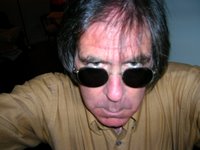
History records that
Simon Bolivar became president of Peru on the
10th in
1823. What it is generally relegated to the footnotes, which is a bit like throwing something into the attic where it is rarely seen every again, Bolivar was also president of Venezuela, Colombia, Ecuador, Peru, Panama, and Bolivia. Also tossed into the footnote bin is that Bolivar founded Lodge No. 2 of the Peruvian Ancient and Accepted Scottish Rite of Freemasonry.
Not that I’m paranoid or anything like that but other Freemasons are the following United States presidents: James Buchanan, Gerald Ford, James Garfield, Warren Harding, Andrew Jackson, Andrew Johnson, James Monroe, Franklin Delano Roosevelt, William Howard Taft, Harry S. Truman, and George Washington
 Edward Whymper, a British climber and explorer died on the 16th in 1911, of natural causes. On the 14th of July in 1865, he led an expedition to the top of the Matterhorn becoming the first of many to reach the Matterhorn’s summit. Sadly, on the descent, four members of his party fell to their deaths. Whymper’s response to this tragedy was extreme sadness, a sadness that led him to introspection about mountain climbing. He suggested that everyone be very aware that in mountain climbing “there [are] joys too great to be described in words, and there have been griefs upon which I have not dared to dwell; and with these in mind I say: Climb if you will, but remember that courage and strength are nought without prudence, and that a momentary negligence may destroy the happiness of a lifetime. Do nothing in haste; look well to each step; and from the beginning think what may be the end.”
Edward Whymper, a British climber and explorer died on the 16th in 1911, of natural causes. On the 14th of July in 1865, he led an expedition to the top of the Matterhorn becoming the first of many to reach the Matterhorn’s summit. Sadly, on the descent, four members of his party fell to their deaths. Whymper’s response to this tragedy was extreme sadness, a sadness that led him to introspection about mountain climbing. He suggested that everyone be very aware that in mountain climbing “there [are] joys too great to be described in words, and there have been griefs upon which I have not dared to dwell; and with these in mind I say: Climb if you will, but remember that courage and strength are nought without prudence, and that a momentary negligence may destroy the happiness of a lifetime. Do nothing in haste; look well to each step; and from the beginning think what may be the end.”








